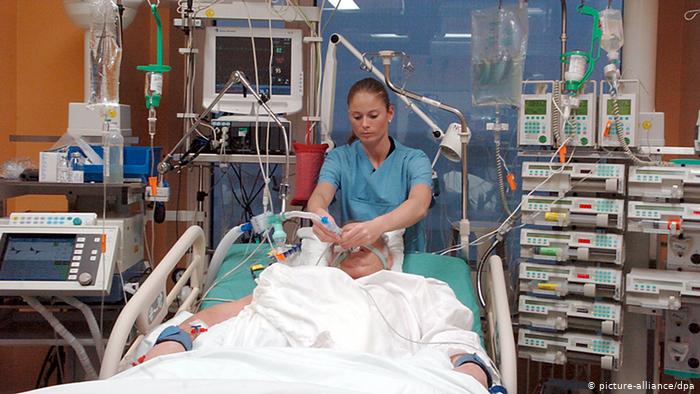The world has been gripped with fear following the detection and widely reported cases of Coronavirus or COVID-19.
Over 5,000 deaths have been reported with over 130,000 cases as at March 13, 2020.
But in the midst of all the panic, there has been little reporting about why some patients are dying.
It has now emerged that Sepsis, a life-threatening organ dysfunction caused by the body’s immune system overreacting in response to an infection played a key role in many Covid-19 deaths.
Sepsis creates overactive, toxic response which can lead to tissue damage, multiple organ failure and death.
Stand out symptoms signalling possible sepsis include, a drop in blood pressure and rise in heart rate, fever, rapid, heavy breathing, an unusually strong feeling of illness and sudden confusion.
A comprehensive study on the frequency of sepsis and sepsis deaths was published in The Lancet in mid-January 2020.
According to the study nearly a quarter of all deaths worldwide are attributable to sepsis every year.
Coronavirus can be fatal for those with some illnesses in the past, but the risk is high in the elderly. #CoronaOutbreak #CoronaVirusUpdate #Covid_19 pic.twitter.com/wEAAC0h6By
— Isaac Kaledzi (@IsaacKaledzi) March 13, 2020
2017 alone 48.9 million sepsis cases and 11 million sepsis deaths were recorded worldwide.
DW reported that in 2015, 75,000 sepsis deaths were documented in Germany alone — more deaths than from colon, breast, lung and prostate cancer combined.
Around 15% of patients who died in hospital in Germany in 2015 died of sepsis, according to DW reporting.
Sepsis can be triggered by a variety of pathogens and the condition is usually caused by pneumonia, wound infections, urinary tract infections or infections in the abdominal cavity.
Doctors say Sepsis can also be caused by seasonal influenza viruses and highly infectious ones, such as coronavirus, Ebola and yellow fever viruses, dengue, swine flu or bird flu viruses.
Sepsis is common in hospitals and often detected very late, according to doctors.
The condition ought to be treated as an emergency with blood quickly examined while antibiotic is administered to allow for sufficient blood circulation and ventilation.
Meanwhile researchers in Canada have been able to isolate the severe acute respiratory syndrome coronavirus 2 (SARS-CoV-2).
SARS-CoV-2 is the agent responsible for the current outbreak of COVID-19 globally which has killed over 5,000 people.
Isolating the virus is expected to help researchers globally develop better diagnostic testing, treatments and vaccines.
It should also help gain a better understanding of SARS-CoV-2 biology, evolution and clinical shedding.
The researchers came from Sunnybrook, McMaster University and the University of Toronto.
Source: Africafeeds.com



